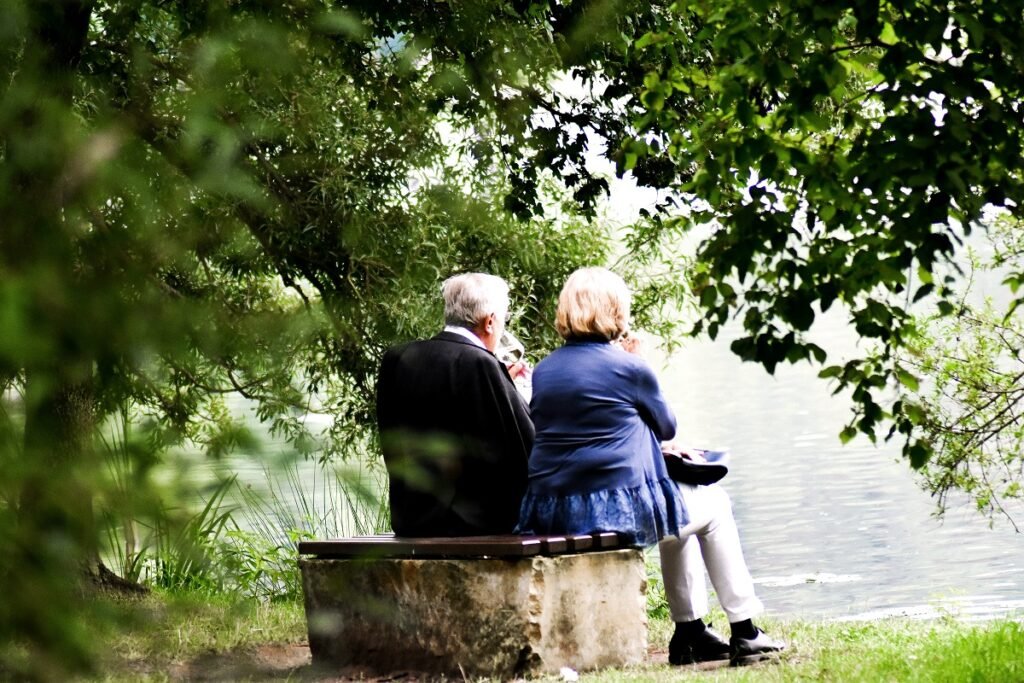Lifestyle Changes in Retirement: A Comprehensive Guide to Transitioning Smoothly

Last Updated on June 27, 2025 by George
Retirement marks the beginning of an entirely new chapter in life—one filled with possibilities, freedom, and a chance to redefine how you live each day. After years of structured routines and career-focused living, the transition to retirement can feel both exciting and a bit overwhelming.
It’s a time when you’re no longer bound by the demands of a job, but this newfound freedom also means that your lifestyle will inevitably change. Understanding and embracing these lifestyle changes in retirement is essential for making the most of this significant life shift.
There are profound lifestyle changes in retirement – from how you spend your time to managing finances and social interactions. It’s a chance to focus on passions, budget wisely, build new friendships, and prioritize health. Embrace these changes for a fulfilling and happy retirement. Let’s explore how to navigate this transition, from downsizing your living space to discovering new hobbies and perhaps even relocating to a new home.
What You Need to Know About the Lifestyle Changes in Retirement?
Retirement is often seen as a time of joy and relaxation, but it can also bring up feelings of uncertainty and even a sense of loss. After years—perhaps decades—of identifying yourself through your career, stepping away from that role can feel like losing a part of your identity. It’s not just about finding new activities to fill your time; it’s about redefining who you are and what gives your life meaning.
Prefer to listen than read?
Retirement is more than just the end of your career; it’s the start of a new way of living. As you step into this exciting chapter, understanding the lifestyle changes in retirement—like adjusting your daily routine, managing finances, and prioritizing health—will help you navigate this transition smoothly.

Understanding the Emotional Transition
Retirement is more than just a change in your daily schedule; it’s a shift in your identity and sense of purpose. The emotional transition can be challenging, but with the right mindset and strategies, you can navigate this change with confidence.
Adjusting to a New Identity
One of the first emotional hurdles many retirees face is adjusting to the idea that their work no longer defines them. For years, you might have introduced yourself by your job title—”I’m a teacher,” “I’m an engineer,” or “I’m a nurse.” For many people, work is a significant part of their identity. Stepping away from a career can feel like losing a part of yourself.
Now, it’s time to discover other facets of yourself that may have been on the back burner. This can be both liberating and challenging. It’s essential to recognize that this transition is an opportunity to redefine who you are.
To ease this transition, it’s helpful to start by reflecting on what aspects of your job brought you satisfaction. Was it the problem-solving, the interaction with people, the creative tasks, or perhaps the sense of accomplishment at the end of a project?
Understanding what you enjoyed can guide you in finding new activities that fulfill similar needs. Retirement allows you to be more than your job title—it’s a time to focus on what truly matters to you.

Coping with Change and Uncertainty
It’s also important to recognize and accept that retirement brings changes, and change can be uncomfortable. It’s okay to feel uncertain or even a little anxious about what’s to come. Give yourself permission to experience these emotions without judgement.
The structure and predictability of a work routine are suddenly gone, and it’s natural to feel a bit lost. To cope with this, it’s helpful to create a new routine that provides a sense of stability. Whether it’s setting a regular time for exercise, hobbies, or social activities, having a daily plan can ease the transition and reduce anxiety.
Talking about your feelings with loved ones or joining a retirement support group can be incredibly helpful. You might discover that others are feeling the same way, and together, you can navigate this new chapter.
Finding Purpose and Meaning
One of the most significant lifestyle changes in retirement is finding a sense of purpose. Without the goals and responsibilities of a job, it’s easy to feel adrift. However, retirement is an ideal time to pursue passions that you may have set aside during your working years.
Finding purpose in retirement doesn’t mean you have to fill every moment with productive activities. Purpose can be found in simple pleasures, like spending more time with family, pursuing a hobby, or volunteering for a cause you care about. The key is to listen to your heart and follow what feels meaningful to you, rather than what you think you should be doing.
Financial Planning for Retirement
Financial security is a cornerstone of a successful retirement. Without a regular paycheck, managing your finances becomes more critical than ever. Proper planning can ensure that you enjoy your lifestyle changes in retirement without financial stress.

Assessing Your Financial Readiness
Before retiring, it’s essential to assess your financial situation. This includes understanding your savings, investments, and any sources of income, such as pensions or Social Security.
Let’s face it—one of the biggest concerns about retirement is money. After years of earning a regular paycheck, the idea of living on a fixed income can be daunting. But with careful planning and a clear understanding of your financial situation, you can create a budget that supports the lifestyle changes in retirement you want without the stress of running out of money.
First, take a good, hard look at your finances. This isn’t just about checking your savings account; it’s about understanding your overall financial health. What are your sources of income? This might include pensions, Social Security, retirement savings, and any other investments.
Do you have debts that need to be paid off? What are your regular expenses, and where can you cut back if necessary? This is where a financial advisor can be invaluable, helping you create a comprehensive retirement plan that aligns with your goals and lifestyle changes in retirement..
Budgeting for a Fixed Income
One of the biggest adjustments in retirement is learning to live on a fixed income. During your working years, you may have been able to splurge a little, knowing that your next paycheck would cover it.
In retirement, it’s important to budget more carefully. Start by tracking your spending to see where your money goes each month. Are there areas where you can cut back? Maybe you don’t need that premium cable package or the latest smartphone model. Small adjustments can add up and help you live comfortably within your means.
Healthcare Considerations
Healthcare is another major financial consideration when it comes to lifestyle changes in retirement. As you age, your healthcare needs are likely to increase, and so will your healthcare costs. Make sure you understand your Medicare options and look into supplemental insurance to cover any gaps. It’s also a good idea to set aside money for unexpected medical expenses—things like dental work, eye care, or prescription drugs that might not be fully covered by insurance.
Budgeting for out-of-pocket expenses can help you avoid unexpected financial burdens. Additionally, consider long-term care insurance if you anticipate needing assistance as you age.

Downsizing: Simplifying Your Space and Life
One of the first things many people consider when they retire is downsizing their home. It makes sense—your kids have likely moved out, and you probably don’t need as much space as you once did. Downsizing can not only save you money but also reduce the amount of time and energy you spend maintaining a large home.
The idea of downsizing can be overwhelming, especially if you’ve lived in your home for many years. It’s not just about moving to a smaller place; it’s about letting go of items that hold memories and meaning. Start by going through your home, room by room, and deciding what you really need and what you can live without. It might help to think of it as a fresh start—a chance to keep the things that truly matter and let go of the rest.
Consider your new lifestyle changes in retirement when downsizing, whether it’s to be closer to family, a warmer climate, or a retirement community with amenities. Choose a home that aligns with your retirement vision, such as a low-maintenance condo for frequent travelers.
Downsizing offers financial savings through lower mortgage payments and maintenance costs, allowing for redirection towards other retirement goals. Start early, give yourself time to declutter, and seek help if needed to simplify your life and focus on what truly matters.
Relocating in Retirement: Choosing the Right Place
Relocating can be an exciting opportunity to explore new environments, cultures, and lifestyle changes in retirement. However, choosing the right place requires careful consideration of various factors.

Factors to Consider When Relocating
When choosing a retirement destination, consider the following:
- Cost of Living: Ensure the area is affordable, considering your fixed income.
- Climate: Choose a climate that suits your health and lifestyle preferences.
- Healthcare Access: Proximity to quality healthcare facilities is crucial.
- Community and Activities: Look for a community with social opportunities and activities that interest you.
Embracing New Hobbies and Interests
One of the best things about retirement is the opportunity to finally do all the things you’ve been putting off because of work. Whether it’s a hobby you’ve always wanted to try or a passion you’ve had to set aside, now is the time to explore your interests and see where they lead.
Retirement is the perfect time to rediscover what you love. Think back to what brought you joy before your career took over. Did you love to paint, write, garden, or play a musical instrument? Or perhaps there’s something new you’ve always wanted to try, like learning a language, taking up photography, or even starting a blog.
The possibilities are endless, and the beauty of the lifestyle changes in retirement is that you have the time to explore them at your own pace.
Building a Supportive Community
One of the biggest lifestyle changes in retirement is the shift in your social life. Without the daily interactions that work provides, it’s easy to feel isolated or lonely. That’s why building a supportive community is so important. Staying connected with others, both old friends and new, can greatly enhance your retirement experience.
Maintaining relationships with family and friends is a crucial part of this. Just because you’re no longer working doesn’t mean you should drift apart from the people who matter to you. Make an effort to keep in touch with your loved ones.
Regular phone calls, video chats, and visits can help you stay connected, even if distance separates you. If you’ve relocated, plan trips to visit your old friends and invite them to visit you. These connections will be a lifeline during your retirement years.
In retirement, it’s important to broaden your social circle by joining clubs or groups to meet new people and build a community. Activities like book clubs, gardening groups, sports teams, or volunteer organizations offer opportunities to make friends and connections outside of work.
If you’re not sure where to start, consider what you’re passionate about. Do you love playing bridge or tennis? Find a local group. Are you interested in photography or painting? Look for a class or workshop. Many communities offer a wide range of activities for retirees, so take advantage of these opportunities to get involved and meet new people.

Maintaining Physical and Mental Health
As you enter retirement, taking care of your physical and mental health becomes more important than ever. Without the routine and structure of a job, it’s easy to fall into a sedentary lifestyle, which can lead to a host of health problems. But with a little effort and planning with your lifestyle changes in retirement, you can stay healthy, active, and happy well into your retirement years.
Developing a Regular Exercise Routine
One of the best things you can do for your health as lifestyle changes in retirement is to establish a regular exercise routine. This doesn’t mean you have to start training for a marathon (unless you want to, of course).
Even moderate activities like walking, swimming, or yoga can have a huge impact on your health. Regular exercise helps maintain your strength, flexibility, and balance, which are all crucial as you age. It also boosts your mood, reduces stress, and can even help prevent chronic diseases like heart disease and diabetes.
If you’re not used to exercising regularly, start small and gradually build up your routine. Find activities that you enjoy, whether it’s hiking, dancing, or gardening, and make them a regular part of your life. Many communities offer fitness classes specifically for seniors, which can be a great way to stay active and meet new people.
Prioritizing Mental Well-being
Mental health is just as important as physical health in retirement. Staying mentally sharp and emotionally balanced will help you enjoy this phase of your life to the fullest. One way to keep your mind active is to engage in activities that challenge you intellectually.
This could be anything from reading and puzzles to learning a new language or playing a musical instrument. The key is to keep your brain engaged and stimulated. Social interaction is also crucial for mental health. Loneliness and isolation can lead to depression and anxiety, so make an effort to stay connected with others. Whether it’s through social activities, volunteering, or just spending time with family and friends, staying socially active will help you maintain a positive outlook and emotional well-being.
Another important aspect of mental health is finding ways to manage stress and anxiety. Retirement can be a big adjustment, and it’s natural to feel a little overwhelmed at times. Practices like mindfulness, meditation, or deep breathing exercises can help you stay calm and centered. It’s also important to make time for relaxation and self-care. Whether it’s a hobby you enjoy, a good book, or a walk in nature, find activities that help you unwind and recharge.
Nutrition and Healthy Eating
Mental health is just as important as physical health when it comes to lifestyle changes in retirement. Staying mentally sharp and emotionally balanced will help you enjoy this phase of your life to the fullest. One way to keep your mind active is to engage in activities that challenge you intellectually. This could be anything from reading and puzzles to learning a new language or playing a musical instrument. The key is to keep your brain engaged and stimulated.

Social interaction is also crucial for mental health. Loneliness and isolation can lead to depression and anxiety, so make an effort to stay connected with others. Whether it’s through social activities, volunteering, or just spending time with family and friends, staying socially active will help you maintain a positive outlook and emotional well-being.
Another important aspect of mental health is finding ways to manage stress and anxiety. Retirement can be a big adjustment, and it’s natural to feel a little overwhelmed at times. Practices like mindfulness, meditation, or deep breathing exercises can help you stay calm and centered. It’s also important to make time for relaxation and self-care. Whether it’s a hobby you enjoy, a good book, or a walk in nature, find activities that help you unwind and recharge.
The Takeaway
Retirement is a time of change, but it’s also a time of opportunity. By approaching this transition with a positive mindset and a willingness to adapt, you can create a retirement lifestyle that is both fulfilling and enjoyable. Whether it’s downsizing your home, relocating to a new environment, or exploring new hobbies and interests, the choices you make now will shape your retirement experience.
The key to a smooth transition into retirement is planning—both financially and emotionally. Stay active, stay engaged, and stay connected with the people and activities that bring you joy. Remember, retirement is not the end of your journey; it’s the beginning of a new and exciting chapter. Embrace the change, and take the time to craft a retirement that reflects your values, passions, and dreams.
With careful planning and a proactive approach, your retirement can be a time of growth, happiness, and fulfillment. Here’s to making the most of this wonderful phase of life!
Frequently Asked Questions About Lifestyle Changes in Retirement
- How long does it typically take to adjust to retirement?
- The adjustment period varies for everyone. Some people adapt within a few months, while others may take a year or more to feel fully comfortable with their new lifestyle. Be patient with yourself and remember that it’s normal to experience a range of emotions during this transition.
- What if I’m worried about having enough money in retirement?
- Financial concerns are common among retirees. Start by creating a detailed budget that outlines all your income sources and expenses. Consider consulting with a financial advisor who specializes in retirement planning. They can help you develop strategies to make your money last and identify potential areas where you might need to adjust your spending.
- How can I stay socially connected after retiring?
- Maintaining social connections requires proactive effort. Join community groups, volunteer for causes you care about, take classes, or participate in activities at your local senior center. Technology can also help you stay connected—learn to use video calling platforms to keep in touch with family and friends who live far away.
- Is it normal to feel a loss of identity after retiring?
- Absolutely. Many people tie their identity closely to their profession, so retirement can trigger feelings of loss or confusion about who you are now. This is a common experience and an opportunity to explore new aspects of yourself. Focus on developing interests and relationships that bring you joy and fulfillment.
- What are some strategies for creating structure in retirement?
- While flexibility is one of retirement’s benefits, some structure can provide comfort and purpose. Consider creating a loose daily or weekly schedule that includes regular activities like exercise, hobbies, volunteer work, or social engagements. Allow for spontaneity within this framework—the goal is to have enough structure to feel grounded without feeling constrained.
- How do I know if I should downsize or relocate in retirement?
- This decision depends on many factors, including your financial situation, health needs, proximity to family, and personal preferences. Start by honestly assessing your current home’s suitability for aging in place. Consider maintenance requirements, accessibility, and whether the location meets your needs. If possible, test out a new location by renting before making a permanent move.
- What if my spouse and I have different visions for retirement?
- It’s common for couples to have different expectations for retirement. Open, honest communication is essential. Schedule regular discussions about your individual and shared goals. Look for compromises that allow both of you to pursue your interests while maintaining your connection. Consider working with a counselor or therapist who specializes in retirement transitions if you’re having difficulty reaching consensus.
- How can I maintain my health as I age?
- Regular check-ups are crucial, as is following your healthcare provider’s recommendations for screenings and preventive care. Establish a consistent exercise routine that includes cardiovascular activity, strength training, and flexibility exercises. Eat a balanced diet rich in fruits, vegetables, whole grains, and lean proteins. Stay socially engaged and keep your mind active through learning and challenging activities.
REFERENCES:
- National Institute on Aging. (2023). “Participating in Activities You Enjoy As You Age.“
- Harvard Health Publishing. (2024). “The health benefits of strong relationships.” Harvard Medical School.
- Centers for Disease Control and Prevention. (2025). Adults 50 and Older Need More Physical Activity.
- AARP. (2024). “Retirement.”
- Mayo Clinic. (2023). “Healthy aging: Beyond 50.”
- American Psychological Association.. “Life Plan for the Life Span.”
- Social Security Administration. (2024). “Retirement Benefits.”





